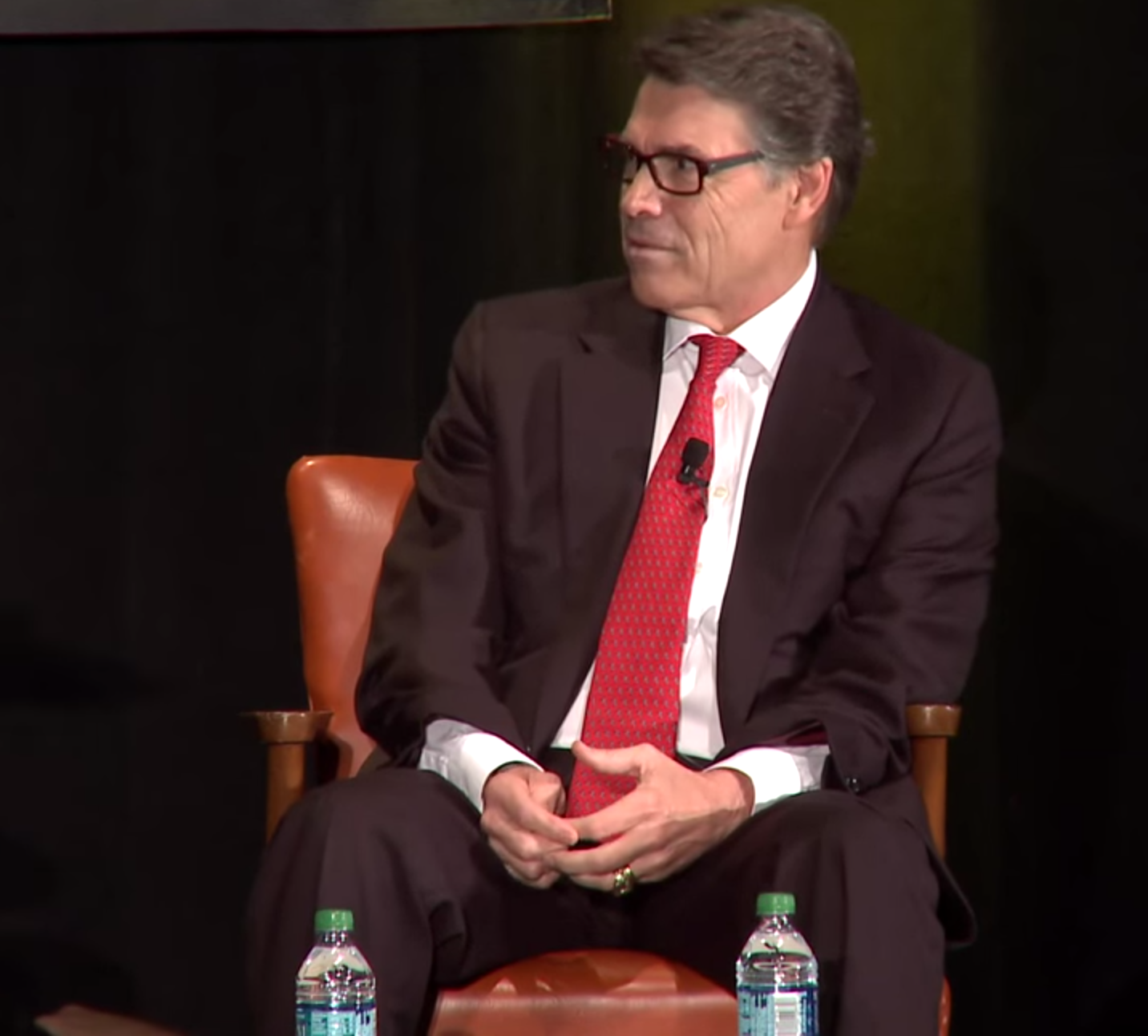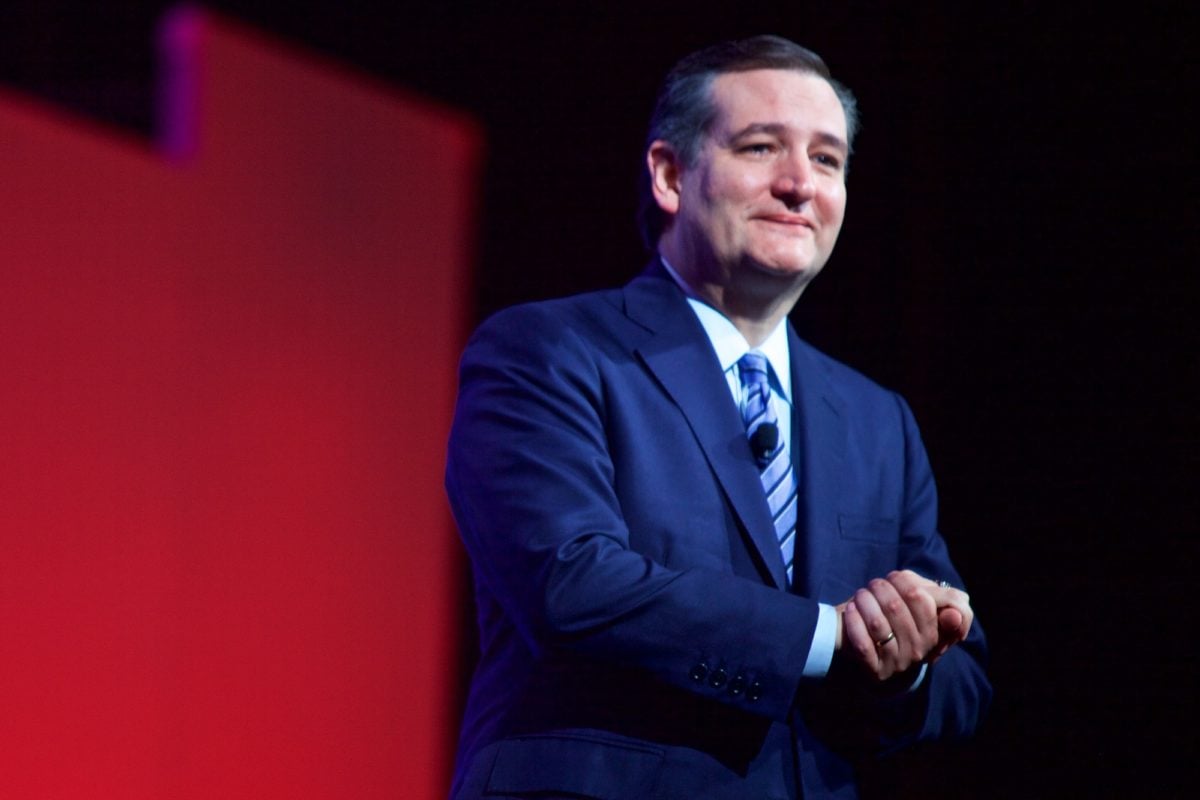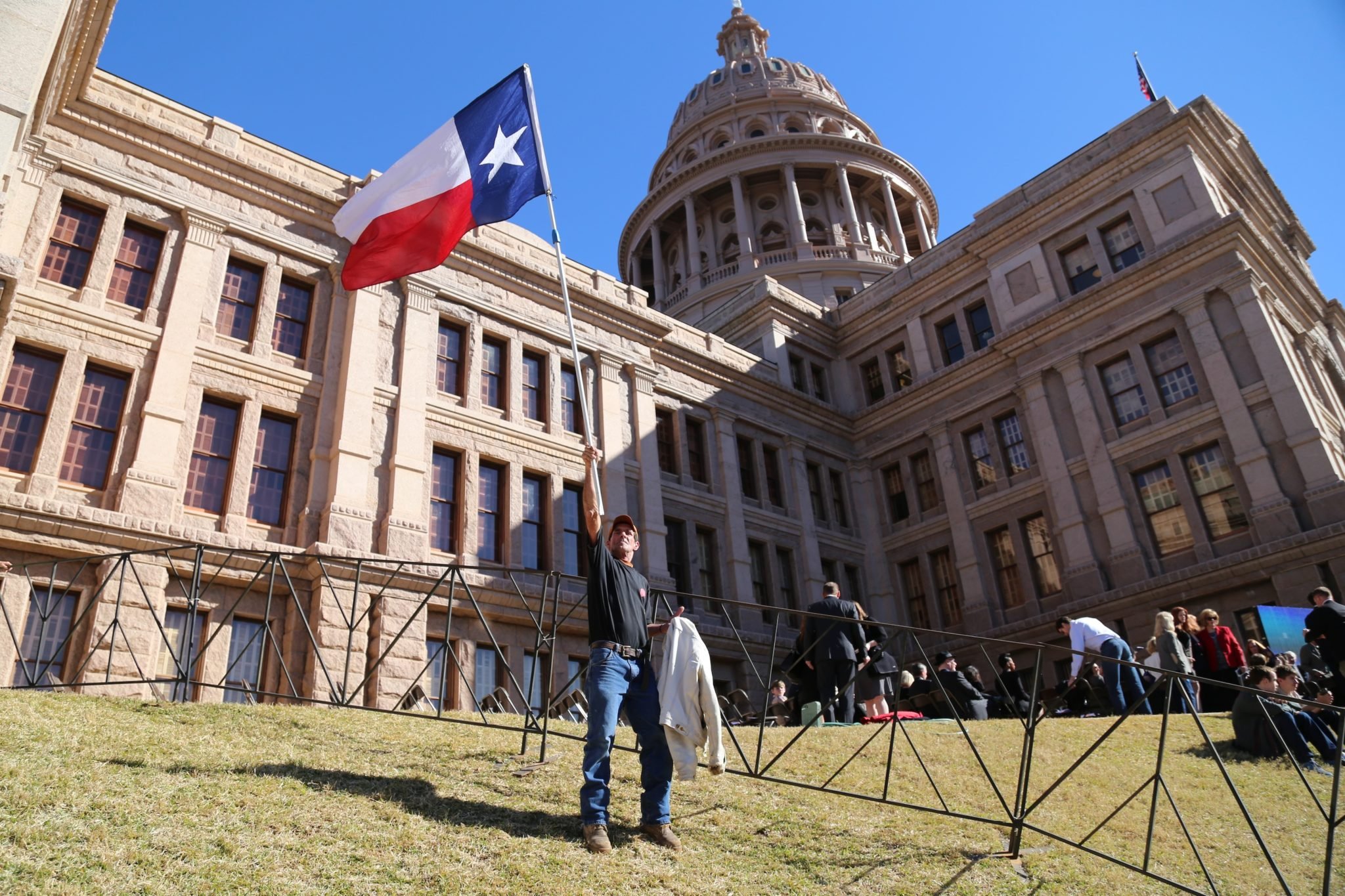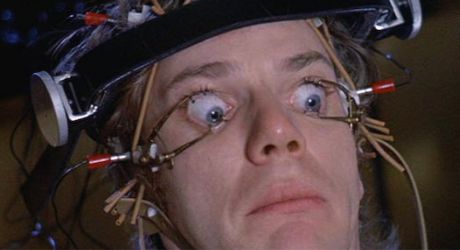
At the Texas Tribune Festival, the Fog Lifts—Briefly

Above: Rick Perry at the 2014 Texas Tribune Festival
Public discourse, the foundation of democracy, isn’t doing too well in Texas these days. The state’s Republicans have such powerful voices that, for the most part, they don’t need to speak. Past a certain point in the election calendar, silence speaks for them. GOP statewide candidates and legislators alike hoard money, hide from the press, and try not to acknowledge the existence of their opponents. Democrats want to be heard desperately, but don’t get the chance very much. The two sides rarely talk to each other. The conversations we have about the state’s problems become stilted and atrophied.
This weekend’s Texas Tribune Festival, the fourth annual, is one of the rare events in Texas political life that pushes back against the trend a bit—it’s a valuable space that gives political actors room to be a bit more open than they otherwise might be. (Even if they don’t always take that chance.) GOPers don’t much like the Texas press in general, especially newspapers, but some will play along with the Tribune. It’s also a reminder of some of the continuing dysfunctions affecting the state’s political life.
Of the GOP nominees, Greg Abbott, who remains a somewhat mysterious figure away from his slickly-produced ads, declined to come, either to take part in a discussion with Wendy Davis or to be interviewed solo. A screening of his McAllen debate with Davis kicked off the festival: Texas voters didn’t seem particularly well-served by the debate’s format or substance, but at least they agreed to be in the same room as each other.
Land commissioner nominee George P. Bush was game, despite some awkwardness between his campaign and the Trib: His opening night keynote might have been his longest appearance in the spotlight yet, and he still managed to avoid saying much. Asked about immigration, Bush said he didn’t “have a magic wand on this issue. It’s terribly complicated” and would require a “multi-generational viewpoint.” (Accio guest worker program.)
Bush has said there’s still a debate on the causes of global warming. So an audience member challenged him: NASA says 97 percent of scientists in relevant fields agree on the causes. Bush’s answer was one for the ages: “I’ve personally met with folks that have visited with other NASA scientists,” he said, “and they contend that that ’97 percent’ is overstated.”
Attorney general nominee Ken Paxton didn’t come. Comptroller nominee Glenn Hegar took part in a discussion on the budget, but—presumably at Hegar’s urging—his opponent Mike Collier was placed on another panel, one that didn’t have to do with state finance. Lt. governor nominee Dan Patrick, to his credit, consented to be interviewed, but not alongside Leticia Van de Putte—she made sure she sat in the front row during his interview, before taking the stage to do hers.
Patrick’s interview was a nice demonstration of his post-primary grandfather tack. He vigorously denies that he’s been “hiding” on the campaign trail. He praises his interviewer, Evan Smith, as well as both David Dewhurst and Van de Putte, who he’s scorched in other settings. He touts school vouchers as the best friend of the inner-city kid, and says he’ll fund public education in a “smart” way while simultaneously helping local jurisdictions cut property taxes. Rainbow Dan.
[pull style=”right”]“The extremes on both sides” were responsible for what happened last summer, Deuell said.[/pull]
There were also a variety of panel discussions, some of which dug deep in policy issues. In some, panelists were so far apart that there wasn’t much room for discussion. In a panel on “dark money” featuring state Rep. Byron Cook, the new chairman of House State Affairs, panelists talked around each other, sometimes unable to even agree on current state of the law. The panel on gay marriage turned briefly contentious when the moderator asked anti-gay marriage warrior Jonathan Saenz about the fact that his ex-wife left him for another woman. (He gave a non-answer.)
Elsewhere, a panel that included former GOP presidential flame-out Jon Huntsman, former Texas Sen. Kay Bailey Hutchison, and former New Jersey Sen. Bill Bradley—a nice enough lot, but not exactly the vanguard on the bleeding edge of American political life—convened to figure out how to beat back partisanship and give life to the political center. It’s a question that’s never made much sense nationally, but even less so in Texas.
Safely out of office, the three wanted to let people know they had finally figured out how things should work. Bradley had the grandest plan: He wanted to build a “third congressional party” that would “stand for three or four key things.” He wasn’t quite sure what those things should be yet, except one of them should be campaign finance. Somebody should recruit 50 candidates to run in 50 key districts across the country. Half would be ex-military officers, half would be women, etc. All this could be accomplished for the modest sum of $360 million. “Here is the problem with our democracy,” Bradley’s footmen would say. “It is the Congress.”
Hutchison’s complaints were more modest. The president had rejected the Simpson-Bowles plan, that totemic budget proposal embraced by the beltway punditocracy. “The president put it on the shelf,” Hutchison said, “and congressional leaders put it on the shelf.” When an audience member asked how you could realistically change Congress with incumbent re-election rates so high, Hutchison suggested replacing our current system with a United Kingdom-style parliamentary slate system, where candidates are not directly elected.
After that, another soon-to-be ex-politician was joining the Both Sides crusade: At a panel on women’s health issues, Bob Deuell, looking more unhappy to be at an event than anyone you’ve ever seen—presumably, he agreed to do this before getting crushed by an accused wife-beater in his primary runoff—told the crowd that he, personally, might have gone along with less stringent abortion regs last summer, but “no one was willing to compromise,” he said, putting the blame for the expansive restrictions on the pro-choice crowd. “The extremes on both sides” were responsible for what happened last summer. It’s a pretty weird rewriting of history. Democrats didn’t have any leverage during the special session. But he kept saying it, over and over, as he stared at his lap.
Molly White, a pro-life activist who’ll be representing House District 55 after November, spoke about her two abortions, and her contention that they were responsible for her descent into drug and alcohol addiction. She opened the panel by flashing a picture of a woman who “died on the abortion table.”
When moderator Emily Ramshaw told White that there was a very low complication rate from abortion, White batted it down. She knew that was wrong, from “my personal experience and from the testimony of hundreds and hundreds of women across the country.”
Austin Rep. Dawnna Dukes, in no mood to dance around, told White that “it’s a personality type that would turn to drugs and alcohol,” and White’s issues didn’t come from an abortion. White: “If you haven’t had an abortion, you can’t say that.”
“Well guess what,” Dukes said. “I have had an abortion.” The room erupted in cheers and applause. She didn’t have any subsequent psychological problems, she said.
The day after, Deuell unloaded on Dukes in the comments of an article about the incident. “Given her views and some comments she made yesterday and in the past,” Deuell wrote, “one might argue whether Dukes has suffered from her abortion.”
Dukes responded: “I sure will not miss you in the legislature. May God keep you, may God bless your sweet heart and I wish you all the best in your next endeavor.”
[pull style=”left”]“I will tell you that it’s already been addressed and I’m not going to be adding anything to it because there’s nothing to add to it.”[/pull]
Some issues, it seems, can’t be talked out. In Texas, that might be most issues. The last event of the festival was also the most highly anticipated—an hour long sit-down between Gov. Rick Perry, he of the recent legal problems, and Smith. He followed a discussion by national journalists who seemed to pooh-pooh Perry’s 2016 chances. One said GOP donors were saying privately that they hoped Perry wouldn’t come calling for money.
In the interview, he seemed slightly muddled. He brought a small placard that showed the state’s job growth. He bizarrely claimed comedian Joan Rivers would be alive if she’d had surgery inside an ambulatory surgical center, except she had. He came out as a fan of both regulation and the press. Asked about the abortion bills last summer: “There are going to be rules and regulations put into place that you don’t agree with,” he said, adding that it was “important to respect those decisions.” (Nobody tell the EPA.)
More interesting, though, was what Perry wouldn’t talk about: his recent indictments. To be fair, there are some things Perry can’t say about his legal problems. But he’s also shot off his mouth about the indictments recently more times than you can count. He’s happy to talk about it on his terms. Here was a setting in which he would be gently challenged on some of his contentions. Smith started asking:
“That issue has been probably as reported on as much as anything that I’ve ever done in my public life,” he said. “And everything has been said about it that I’m going to say about it.”
Smith tried again. “I think everything that I am gonna say about the activities is pretty much done,” Perry said.
Again: “Everything has been said about that and I’ll refer you back to the press reports about it.”
One more time: “I will tell you that it’s already been addressed and I’m not going to be adding anything new to it because there’s nothing new to add to it.”
The speech imbalance in Texas politics exists at this festival, too, but it still might be the best corrective we have—even if its audience is pretty small. Davis did immeasurably better during her keynote than she did at the McAllen debate on Friday—she was more natural, more compelling and more incisive. It was a better airing of her views than we’ve seen so far. Van de Putte outshone Patrick in her session—she’s a natural and effective communicator. But the festival’s over, so we’re back to the quiet.


